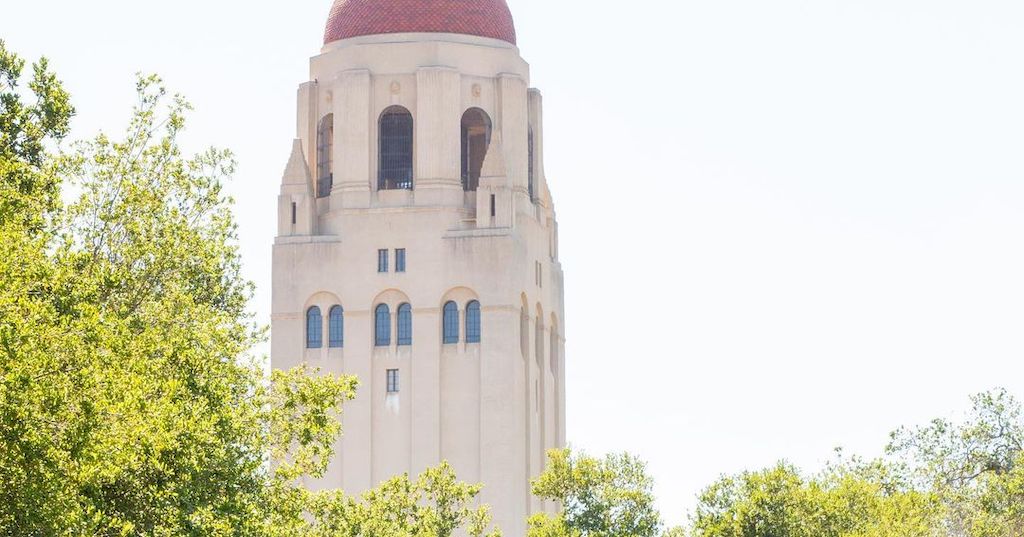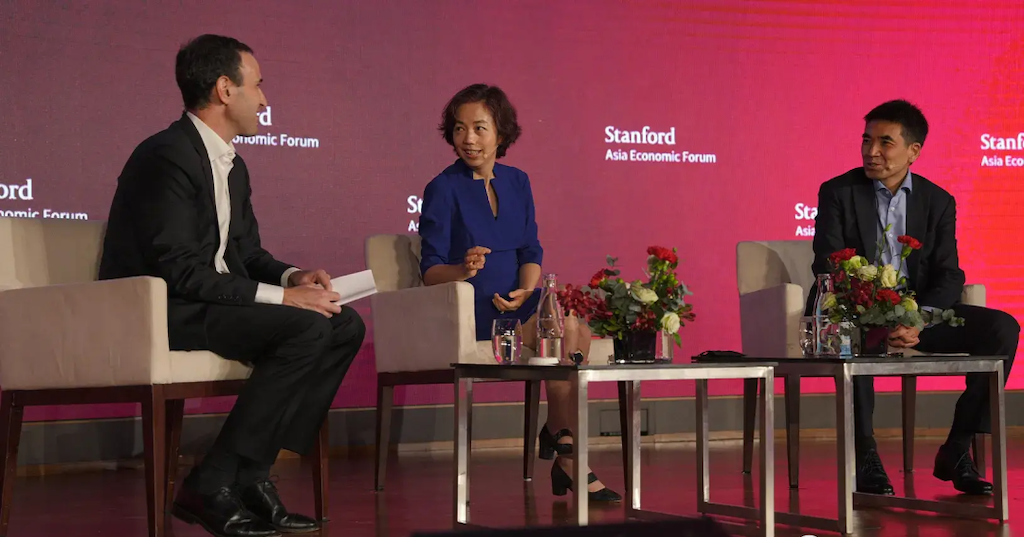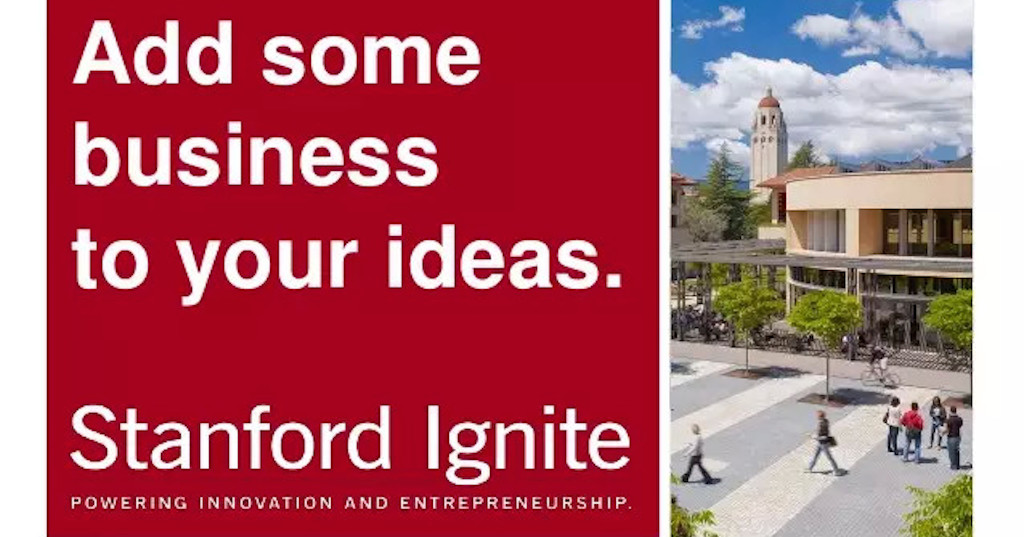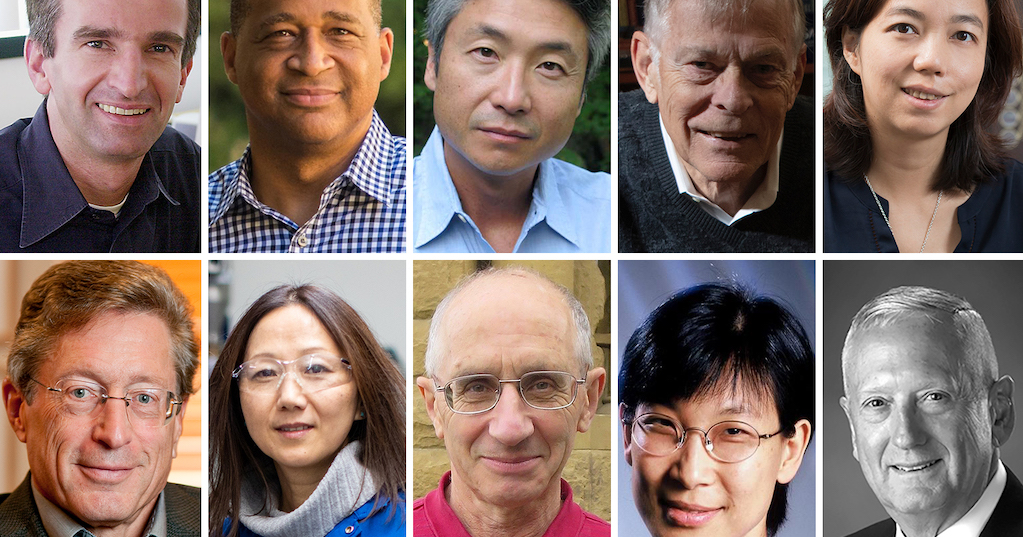2021斯坦福商学院毕业典礼回顾
斯坦福商学院2021届毕业典礼以及庆祝活动于2021年6月7日在校园内举行。斯坦福商学院院长Jonathan Levin对2021 届毕业生发表了毕业致辞,市场营销学教授Jennifer Arker发表了主题演讲,Areeba Kamal和Emily Calkins作为2021届毕业生代表发言。

斯坦福商学院院长Jonathan Levin的毕业致辞原文如下:
Read the dean’s remarks given to the Class of 2021 on June 7, 2021 by Stanford GSB Dean Jonathan Levin.
Last week, I recorded a podcast with a GSB alumnus. He was curious about graduation. He asked: “What’s distinctive about the graduating class?” And, “do you have a theme for graduation?”
The first question was easy. You arrived at the GSB from more than 60 countries, investors, consultants, entrepreneurs, activists, Olympians, surprisingly good dancers, and formed a historically resilient class.
The second question made me think. I said, my theme is optimism.
Let me tell you a favorite story about optimism.
In 1914, the great polar explorer Ernest Shackleton set out to attempt the first crossing of Antarctica. As he and his crew neared land, his ship, Endurance, was crushed in the sea ice, stranding them for more than a year. Eventually, they managed to reach a remote island.
With no rescue coming, Shackleton then left his men behind, and with five companions, set out on the open sea in a 22-foot wooden lifeboat. They sailed 800 miles through some of the most treacherous ocean on the planet to South Georgia Island. They attached nails to their boots, and with a single fifty-foot rope and a makeshift ice axe, crossed the mountains to a whaling station. Everyone in Shackelton’s party was saved.
Later, a reporter asked Shackleton if he believed his men would survive. Shackleton said, of course he had: “The quality I look for most is optimism: especially optimism in the face of reverses and apparent defeats. Optimism is true moral courage.”
I am sometimes accused, fairly, of being an optimist. But let me be clear about the meaning of the word — and how I think Shackleton was thinking about it.
Optimism does not mean having the naive sense that everything is fine, or will simply work out. Optimism comes from the Latin word “optimus” meaning “the best.” Optimism means continuing to believe that the best is possible, and striving for it.
To Shackleton, optimism was a form of courage — not being undone by negative outcomes, but believing that rescue was possible, and from that belief, drawing the strength to make it happen.
Fifteen months ago, this class was dealt a reverse, an apparent defeat. Okay, it wasn’t being stranded on the ice in Antarctica for an entire winter. Some of it involved too much Netflix and repeated orders from DoorDash. But it was a setback. And a setback of global proportions, with consequences for everyone on the planet.
Your reaction could have been disappointment, dismay, despair. And of course, there was some of that. Some of you suffered personal losses. All of you experienced a year you hadn’t planned for, or necessarily wanted. But in so many instances, this class responded with optimism.
You contributed to and helped create the experience of online learning. You planned and executed major events — and I only had to yell at you about some of them. You started organizations. You engaged with each other on a wide range of incredibly complicated topics, including racial equity and politics. You formed strong friendships.
We said many times this year that you don’t always get to choose your circumstances, but you do get to choose what to make of them. You chose to make the most of your GSB experience.
And now we’re here. The pandemic is ending (at least here). And there is every reason to be optimistic about your future. One paradox of the pandemic is that while it limited our lives, what was possible, it also created many opportunities.
You are graduating at a time of enormous change: an acceleration of digital technology, a rethinking of work, the opportunity to build and reshape organizations, a recognition that business can help solve the biggest challenges of our time. It is exactly a time when your Stanford education will be most valuable.
And, more than other classes, you’ve learned how to deal with uncertainty and ambiguity, and to be adaptable and resilient, an incredible set of lessons for your career and life.
This brings me to my final point about optimism. One of the historical uses of the word was “the greater good.” As you leave the GSB, I want to ask: “How will you use what you’ve learned to contribute to the greater good?”
Truthfully, I ask this of every class. I tell them how much I expect of them, and how excited I am for the contribution they will make. This year, I say it with even more excitement and confidence, because of the ways your unique experience has prepared you to be leaders in the world.
Congratulations. I wish you all the best in your next voyage.
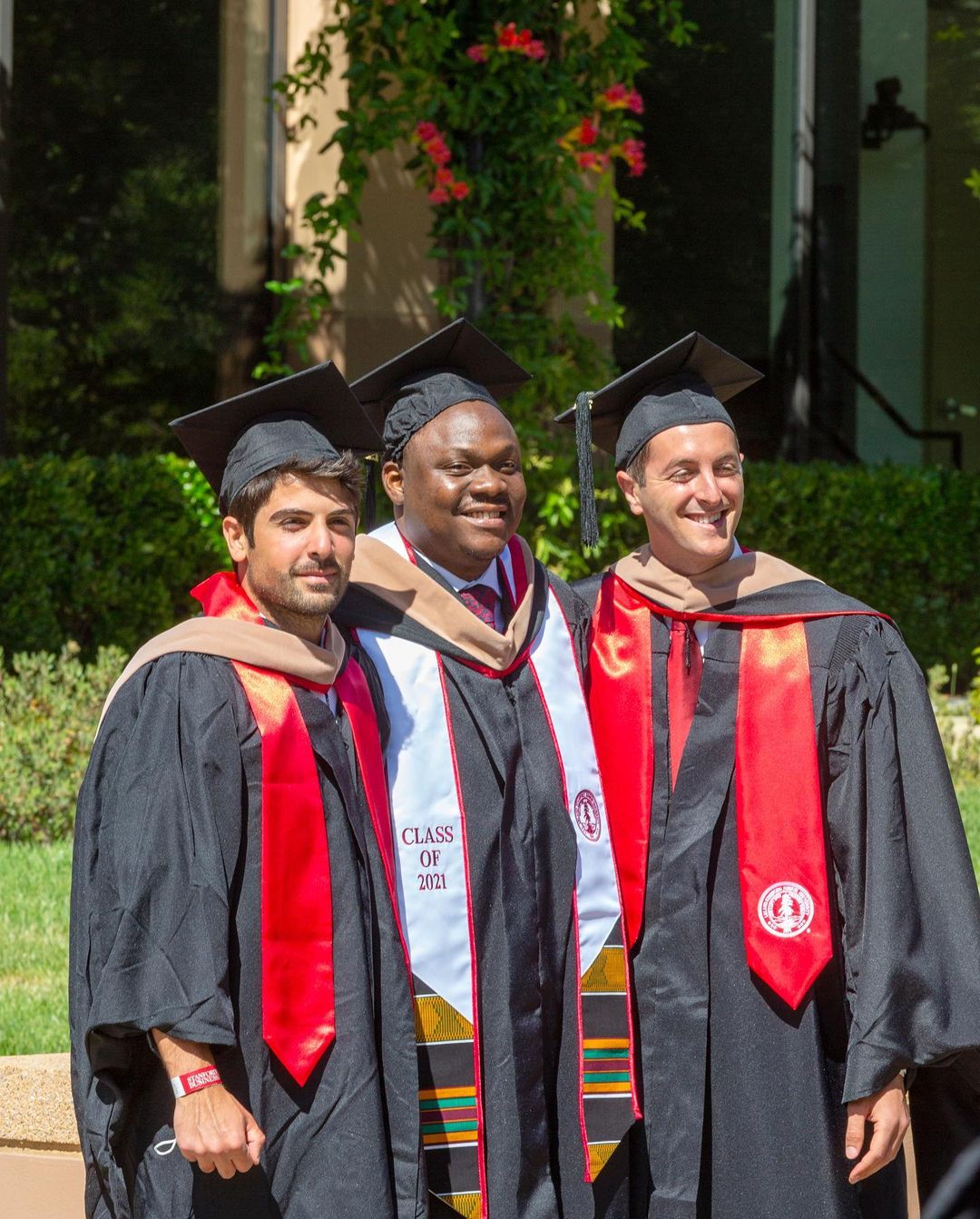
Jennifer Arker教授的主题演讲原文如下:
Thank you deans, faculty, parents and graduating class of Stanford Business School 2021. It’s good to see everyone wearing pants.
When Dean Levin asked me to give this speech, I wondered: What would you remember? So, I started by running a study with our alumni — I’m an academic after all. I’m going to ask you the same questions I asked them.
Think back to the last graduation you attended. Raise your hands if you remember the weather. Now, raise your hands if you remember what the commencement speaker said.
Like you, 88% of our alumni remembered the weather; 18% remembered the speech.
So let’s take a moment to all really appreciate this weather. Because it’s all we are going to remember.
I also asked our alumni for one piece of advice they’d like to share with you.
Surprisingly — because we’re in a business school — only 2% mentioned business advice.
The rest shared lessons they learned about life.
One was — engage deeply with this question: What do you believe constitutes a life well-lived?
When I grew up, we talked about this topic all the time because my mom has been a hospice volunteer for 40 years. Therefore, she’s had thousands of conversations at the end of people’s lives where this question comes up.
So, what I would like to share with you today is what I’ve learned — three things that are important to me for a life well-lived.
1. Embrace Your Dimensionality
This might sound a little unusual, but let me give you an example of what I mean.
Once upon a time, too long ago, I was a PhD student here. But outside of collecting and analyzing data, I also loved running underground clubs. During the week, I would take my courses. Then, every Thursday, I would pack a bag, drive to San Francisco, change into my baggy hole-filled jeans, boots, and skull cap.
From 10:00 p.m. to 1:00 a.m., I would work the door of the club. From 1:00 to 4:00 a.m., I’d work on my dissertation in a dusky backroom — interrupted with periodic dance breaks.
The Stanford community hadn’t seen a dancer that prolific until Dan Knapp hit the scene two years ago.
If I’d tried to align with common expectations of what a Stanford student was, I wouldn’t have these experiences — which I now remember far more vividly than all the regression analyses I ran.
Embracing your unique dimensionality means creating time and space for every part of you to thrive — even if nobody else envisions you that way.
Everyone is here because some element of your unique dimensionality brought you here.
Now that you’re graduating, own your uniqueness. Become even more dimensional, unconventional, surprising. Seek to surprise yourself.
Keep making bold choices. We all overestimate their downside.
2. Don’t Take Yourself Too Seriously
Stanford’s mission is: Change lives, change organizations, change the world.
If this year has taught nothing else, it is that we must take that mission seriously. But not ourselves.
Here’s the problem. We fall off a humor cliff in our 20s — right when we start working.
The average four-year-old laughs 300 times a day. It takes the average 40-year-old 2.5 months to laugh that many times. We can do better, people.
Studies show that leaders with a sense of humor — any sense of humor — are more motivating and admired. Their teams are more engaged and creative.
They make more money. When you throw in a lighthearted line to the end of sales pitch — like, “my final offer is X and I’ll throw in my pet frog” — people pay almost 20% more.
You get paid more — based on a bad dad joke.
Neurochemically, laughing is like exercising, meditating, and having sex — at the same time. But logistically easier.
The question is how can we have more of it?
First, know that humor isn’t about being funny. It’s about shifting your mindset — looking at life in a different way.
You do that by simply observing what’s around you. At the heart of comedy is truth.
Don’t ask yourself what joke can I make? Ask yourself, what’s the truth that no one else is sharing.
For example, the creators of this year’s GSB show looked at Dean Levin and saw the truth: “This man is hot!” So, they created an entire song and dance number focused on Hot Dean Levin.
Second, when you are playing at the highest levels, remember to balance gravity with levity.
When Secretary of State Madeleine Albright visited our class, she shared stories of using humor to disarm. Once, upon discovering that the Russian government had bugged the State Department, she arrived at her meeting with the Russian foreign minister wearing an enormous bug pin. He smiled, knowing the jig was up, and that changed the entire negotiation.
Even in the most serious of moments in life — pause, ask yourself: Can you bring levity to it? How might the moment be transformed?
3. Last, End on Love
It might seem odd to talk about love at a business school graduation. But this is not a normal business school graduation.
And the reality is that the love you feel now is the thing you will remember. (Besides the weather, of course.)
Ten years from now, you’ll remember your classmates bringing you home-baked cookies during quarantine.
You’ll remember the glowing smiles when you finally saw each other in person.
You’ll remember the raw intimacy of virtual TALKs, looking right into your classmates’ eyes as they bared their souls and let you into their hearts.
People may forget what you said, they may forget what you did, but they’ll never forget how you made them feel.
What you have gone through and achieved over these last two years was not only defined by happy moments, but marked by tragedy, pain, uncertainty, and resilience — truly meaningful ones. All of this builds durable love.
Because of your unique shared experiences, you—perhaps more than any other graduating class—truly understand what defines meaningfulness.
How can this knowledge of what is truly important drive you to be bolder.
To intentionally harness humor, even in serious situations.
To lead with love.
When my mom’s best friend — who was a second mother to me — passed on, we gathered around her bed, and my mom did with us what she had done with so many families over the years: she guided us through the dying process.
My mom taught us how to hold her hand and breathe with her; because if you breathe with her, she feels you are part of her.
My mom shared that our last sense to go is hearing so it was important to talk to her — and say it’s okay to let go. But you don’t actually need to say goodbye; you can just say I love you.
So I breathed with her, I held her hand, and I said I love you.
Today is an ending of sorts. But it isn’t goodbye.
Before closing, I want to ask you to do something. Close your eyes.
Now imagine someone who loves you deeply. Imagine them standing in front of you. Take a deep breath in. Imagine the way they look at you, their eyes and smile. Imagine them breathing and you breathing with them. Notice how you feel right now. In their presence you feel seen, you feel known — you feel unconditionally loved.
OK. Open your eyes.
Now take that feeling out into the world.
Thank you, I love you.


